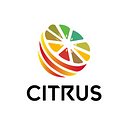What Is GAMEFI? The Future Of Digital Ownership And Gaming
GameFi is a really cool blend of “Games” + “Finance”. Sounds strange, yet intriguing! Let’s dive deeper into the rabbit hole and understand what exactly “GAMEFI” is and how it shall affect the future of the gaming and finance industry.
The crypto ecosystem breeds many new concepts and combinations of technologies that eventually lead us to a new paradigm. Blockchain technology combined with traditional concepts have mirrored a new era of innovations. One such ingenious and fascinating concept is “GAMEFI”. As the name suggests, GameFi is the trunk holding on combined roots of Games + Finance.
Imagine living in a world where you could earn money simply by holding joysticks in your hands while you relax on your comfy sofa. Yes, your gaming abilities can earn you money, not just in-game money, or royalty points, but real money that you can use to pay your utility bills and create an additional source of income. You can auction and sell the in-game characters, your avatars, weapons, accessories and many more in the real world.
Before luring further, let us pour some light over the actual meaning of GAMEFI;
WHAT IS GAMEFI?
The term GameFi, combines the terms “game” and “finance”. In the context of blockchain gaming, GameFi refers to blockchain games that reward players with economic incentives. As players complete tasks, battle other players, or progress through various levels, they earn in-game rewards such as crypto tokens, virtual land, avatars, and other NFTs. In contrast to traditional games, play-to-earn games let you transfer in-game assets out of the game’s virtual world after you buy them.
According to a statistics report published by veteran Tracy Spaight, GameFi is one of the fastest growing segments in the video game industry and will continue to flourish more once the potential is unveiled to its maximum extent.
Now that we are clear with the true meaning of GAMEFI, let’s see how it actually works;
HOW DOES GAMEFI WORK?
As we discussed further, players earn in-game rewards by completing tasks, battling other players or progressing through levels. Currently, many play-to-earn games rely heavily on grind mechanics, in which players have to complete repetitive tasks to progress or unlock prizes.
In-game rewards include virtual land, avatars, weapons, or costumes (also known as skins). Most of these assets are non-fungible tokens, or NFTs, essentially serving as a “virtual deed” conveying ownership of a piece of digital art. Unlike cryptocurrency, NFTs run on the blockchain, so they can be traded or sold outside of games.
Game models and economies are unique to each game. Nevertheless, most of the digital assets provide players with some kind of monetary benefit — whether it is because they won a fight and won crypto, sold an NFT they purchased in-game or charged fellow players rent for staying on their virtual land.
To frame a better picture of this, let’s understand it this way;
There are a number of popular games on the market that feature virtual land ownership, such as Decentraland and The Sandbox, which allow players to acquire digital pieces of real estate, develop them, and then charge other players to stay there. These fees or rent earned can be considered as a reward from the digital asset owned by the player.
We hope your concept of GAMEFI and its working is cleared up till now! Let’s move to the main pilot of today’s blog, how gamefi brings in ownership of players;
HOW GAMEFI IS BRING IN OWNERSHIP?
The idea of playing online games or virtual games isn’t something new. It is something we have all been experiencing for many years now. Our jaws drop however, when we hear about making games as a source of additional income and using ownership of digital assets as a starting point for further investment.
Despite the fact that the space is still fairly new, what excites us the most about GameFi is the “new kind of ownership” empowered by the industry’s structure.
It was up until now that video games were housed on centralized servers owned by a gaming company which had the implicit right to shut down the world whenever they desired. On top of that, players did not actually have ownership over any of the items they accumulated through their characters — the clothes, the weapons, the prizes. There was nothing really valuable outside of the boundaries of the game, and everything existed solely within the confines of the game.
The nature of GameFi products makes it different. Thanks to GameFi’s decentralized nature and its reliance on blockchain technology.
A growing number of people are beginning to recognize that owning the digitized assets in a game is not just something cool, but rather something that gives you power as a player. If these players are helping to build part of the value of the gaming universe, they should also get a piece of it.
There are many key players in Web3, including Telstra Ventures, which has been a prolific investor in crypto companies for some time now, enthusiastically backing the next chapter of GAMEFI for the company.
Providing true ownership to the in-game assets, which are no longer restricted to one game environment or one server, but have liquidity and real value and can be traded, allows players to make a living and rise to the top. The whole thing is pretty exciting. It’s incredible how big the market is already.
CONCLUSION:
In a nutshell, GAMEFI promises to bring easy earnings to the table by utilizing your gaming skills. As a matter of fact, GAMEFI does not only indulge a fun concept in the ecosystem but also brings in more usability and utility to the space when it is optimally utilized.
Keep following CITRUS to gain more such insights over gaming and tech industry!
